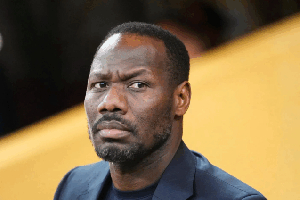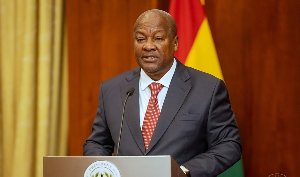The nominee for the position of deputy Attorney-General G and minister for justice, Kwame Osei Prempeh, says he does not subscribe to death penalty as punishment for convicted persons under our laws.
He contended that there was no jus tification for it, and insisted that he would always advocate for its abolition.
Mr. Osei Prempeh said this when he appeared before the Appointments Committee of parliament to be scrutinized by the legislature for his new position.
The nominee argued that killing a person for a specific crime committed does not have any positive effect on society because the person would be dead and gone and would not regret in any way.
"After this if investigations reveal that the one killed was innocent, the person cannot be brought back to life. Death penalty should be abolished", he said.
He reiterated that armed robbers who have been found guilty should be given an alternative to the death penalty. He was, however, quick to stress that what he was saying was his personal belief.
"Put the person in prison without pardon or parole and let him be there forever. I think that is a better punishment", he opined.
The member for Kwamang-Nsuta-Beposo Constituency advocated for a proper social system for communal service in his community so that convicted persons could be seen in the community working or weeding a farm for say, six months.
He added that this exercise would be more profitable to the state than to send the person to prison, only to become more hardened than when he first in. he also lamented that the state would incur unnecessary expenses on such a person while in prison.
Asked if in the discharge of his duties as deputy AG, and he is confronted with a case in which death penalty is the sentence to be imposed he would do so accordingly according to the demands of the law, Kwame Osei Prempeh replied in the affirmative.
"The view is my personal opinion but the laws of the country are applicable and everyone is subservient to the law so that if I had to be confronted with a situation like this, I would exact that", he assured.
He quickly added that if there were an alternative, then he would hesitate in asking for the death penalty.
On his view on the Transfer of Convicted Persons Bill, which is currently before the house, the nominee said it was laudable since Ghanaians anywhere in the world are supposed to be protected by the state.
On his thoughts on rape was and what he would say to a section of Ghanaians advocating for the inclusion of marital rape in the Domestic Violence Bill, he explained that our criminal code did not criminalize marital rape, and stressed that that was what the code wanted to take care of.
"My personal view is that it is something, which may bring a bridge to so many marriages. I do not subscribe to that".
He explained that looking at our cultural background, for a wife to go to the police or court to say that her husband had sex with her without her consent would be something else, adding that "Legally it may be desirable, but culturally and socially it may have its own problems".
He advised that caution be taken on such issues because he does not see how many women would go to court to say they had been raped, saying, "It always remains indoors".
The deputy minister designate emphasized that rape is a crime but rape in a marital situation was where the contention was.
"For better social cohesion, we have to look at it critically before we leap", he concluded.
On his part, the nominee for the position of Deputy Western Regional Minister, Kwasi Blay, who was the last to appear before the committee, said chieftaincy, illegal mining and unmotorable roads were the challenges facing the region.
He promised to advice the illegal miners to form groups and approach the mining companies to dialogue with them to be given areas to mine from, to able to earn some form of livelihood.
General News of Monday, 5 June 2006
Source: Chronicle












